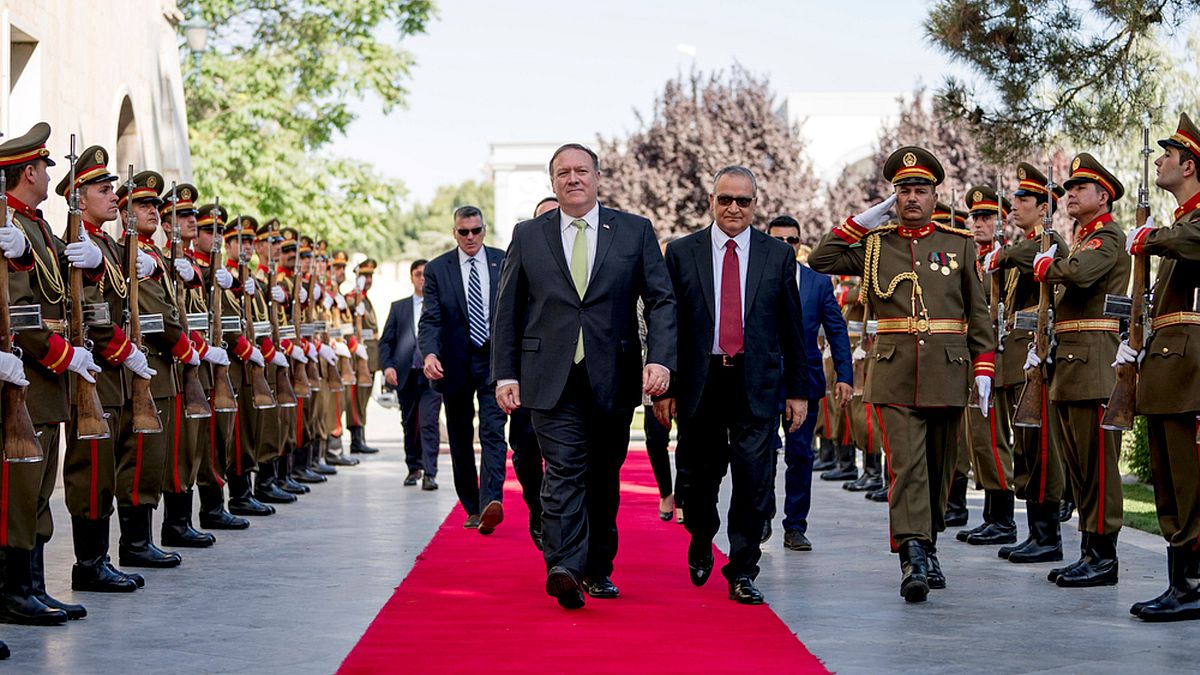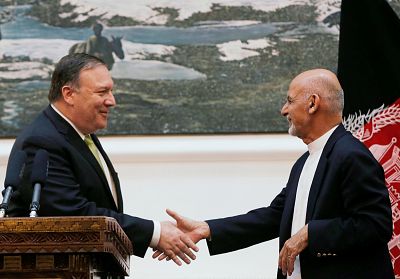As violence continues across the country it is difficult to conclude that conditions have greatly improved.
KABUL, Afghanistan — Secretary of State Mike Pompeo arrived in Kabul Monday for his first visit to Afghanistan since becoming Secretary of State, declaring shortly after landing that President Donald Trump's strategy for winning America's 17-year-long war is working.
"I came here today to learn the progress we've made," Pompeo said, discussing Trump's less-than-year-old approach to the conflict. "My conclusion from this visit is the president's strategy is indeed working."
As part of an announcement on a new South Asia Strategy last August, Trump said the U.S. would focus on a conditions rather than a timeline-based approach. Pompeo said Monday that they had begun to see signs of success, touting results on the battlefield where the Taliban's momentum was slowing and pointing to the progress of Afghan led elections this fall.
"The strategy sent a clear message to the Taliban, they cannot wait us out," Pompeo said. "Many of the Taliban now see that they can't win on the ground militarily, that has everything to do with President Trump's strategy."
Pompeo's trip also comes just days after the death of a U.S. service member Cpl. Joseph Maciel of South Gate, California, in what the U.S. Defense Department called an "apparent insider attack." Maciel, who was the third U.S. service member to be killed in Afghanistan this year, was deployed in February as part of Trump's South Asia strategy, working on a brigade of advisers to train and advise Afghan soldiers and police. Two other U.S. soldiers also were wounded in the attack.
And as violence continues across the country it is difficult to conclude that conditions have greatly improved. A rare ceasefire last month between the Afghan government and the Taliban lasted a few days before 30 people were killed in an attack.
Still, the Secretary said they were encouraged by the Afghan's response and were supportive of an Afghan-led peace process where the U.S. played a role.
"We are prepared to participate and facilitate, to help the Afghan people resolve their differences and to provide a place where all of the Afghan people can have their voices heard," Pompeo said while standing next to Aghan President Asraf Ghani.
Ghani said they had not seen a ceasefire in 40 years and they do not take it for granted.
"If there was a ceasefire for a few days, why not a few years?" Pompeo remarked to U.S. service members at Bagram Air Force base.
Pompeo declined to characterize in what way the U.S. was already engaged with the Taliban but the administration has said in the past the U.S. will not have direct talks despite the Taliban's request.
Pompeo will now head to Abu Dhabi in the United Arab Emirates for one day before joining Trump at the NATO Summit in Brussels later this week.

